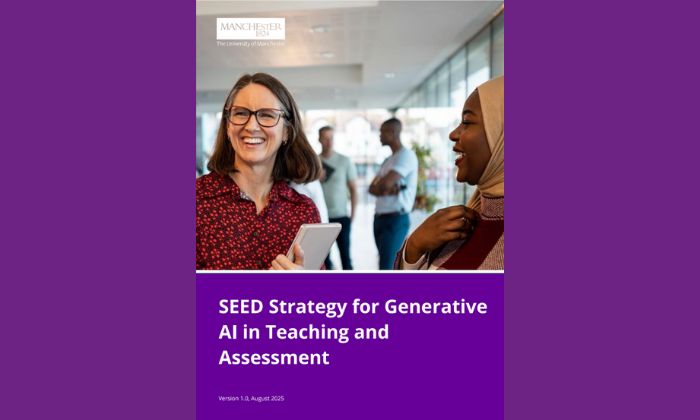New SEED Strategy for Generative AI in Teaching and Assessment
18 Sep 2025
The School’s new strategy for Generative AI in teaching and assessment looks to build staff expertise in AI use, ensure AI Literacy for students and build towards re-developed assessments.

Generative AI technologies like ChatGPT and Claude are reshaping how people (especially students!) access and process information. SEED will be adapting its educational provision in response, building on the University’s AI policy.
Download the SEED Strategy for Generative AI in Teaching and Assessment
The strategy prioritises an organic, pilot-based process that takes close account of both educational considerations and the environmental impact of the use of AI technologies. Appendices are included in the strategy document that provide formal SEED guidance on dealing with suspected cases of inappropriate use of AI tools by students and on the School's process to approve variations from University policy for AI.
Why not consider?
- Initiating informal discussions with your students about their use of AI.
- Trying out the University’s recommended AI tool, Copilot Chat, on your Microsoft Edge browser after logging in with a university account.
- Joining a session (when announced) from the SEED AI Community of Practice.
- Reviewing your assessment criteria in light of the guidance in the appendix to the new AI strategy. · Visiting the Humanities Digital Learning AI for Teaching and Learning Sharepoint site (where SEED specific resources will be available shortly).
Key message for students
- GenAI tools should be used to supplement rather than supplant learning! Always start from your own ideas and involve other sources.
- Avoid an indiscriminate use of AI, given its environmental impact.
- Outputs from GenAI tools must be cited/acknowledged appropriately.
Videos for students
Alongside the strategy, a series of three videos have been produced which you can share with your students. These are available on the Video Portal:
Slides for teaching staff to adapt and use with their students are also available here.
For more information, please contact Peter Kahn, Chair in Digital Education.
